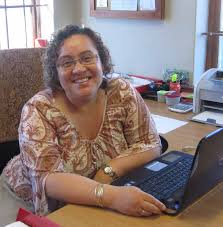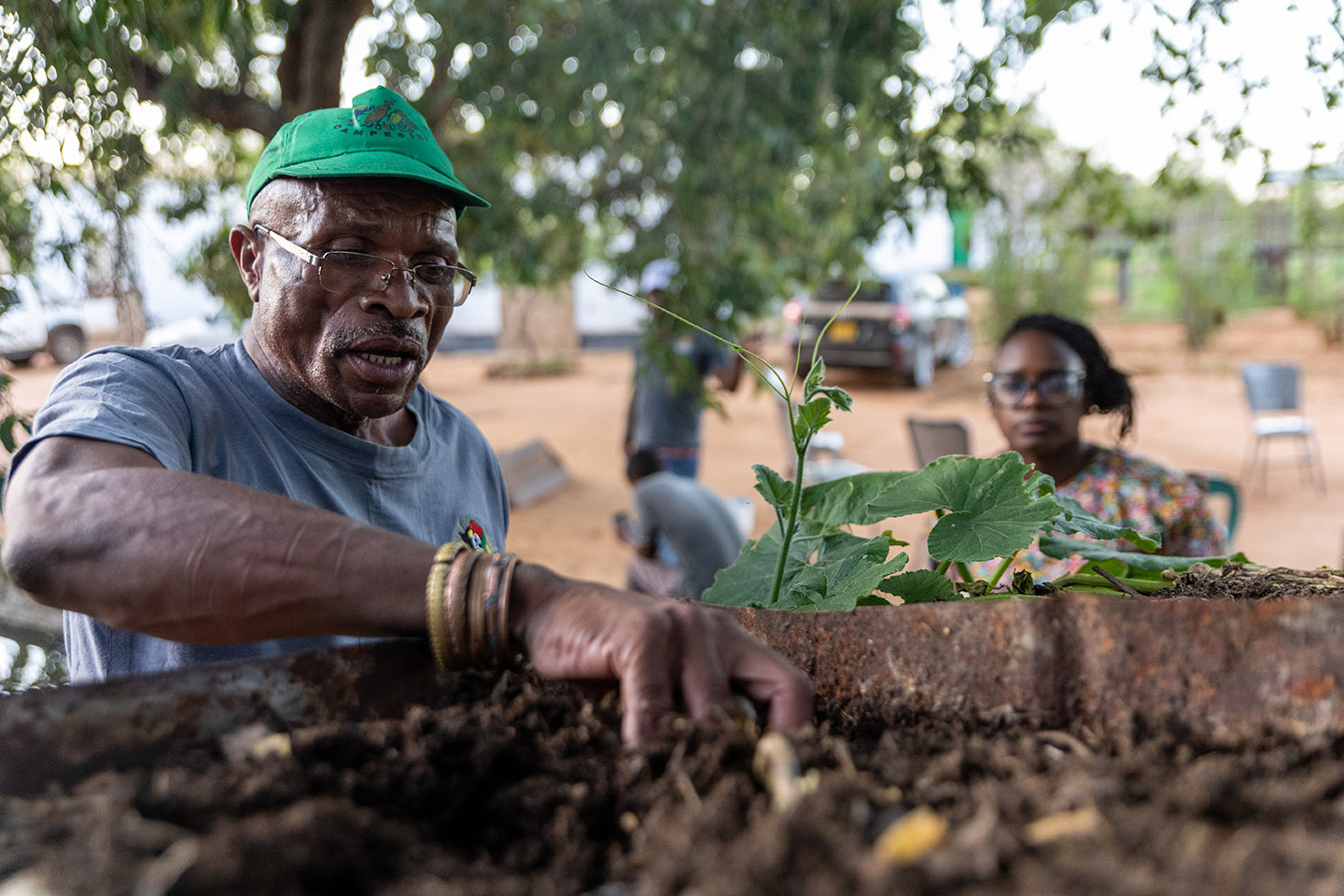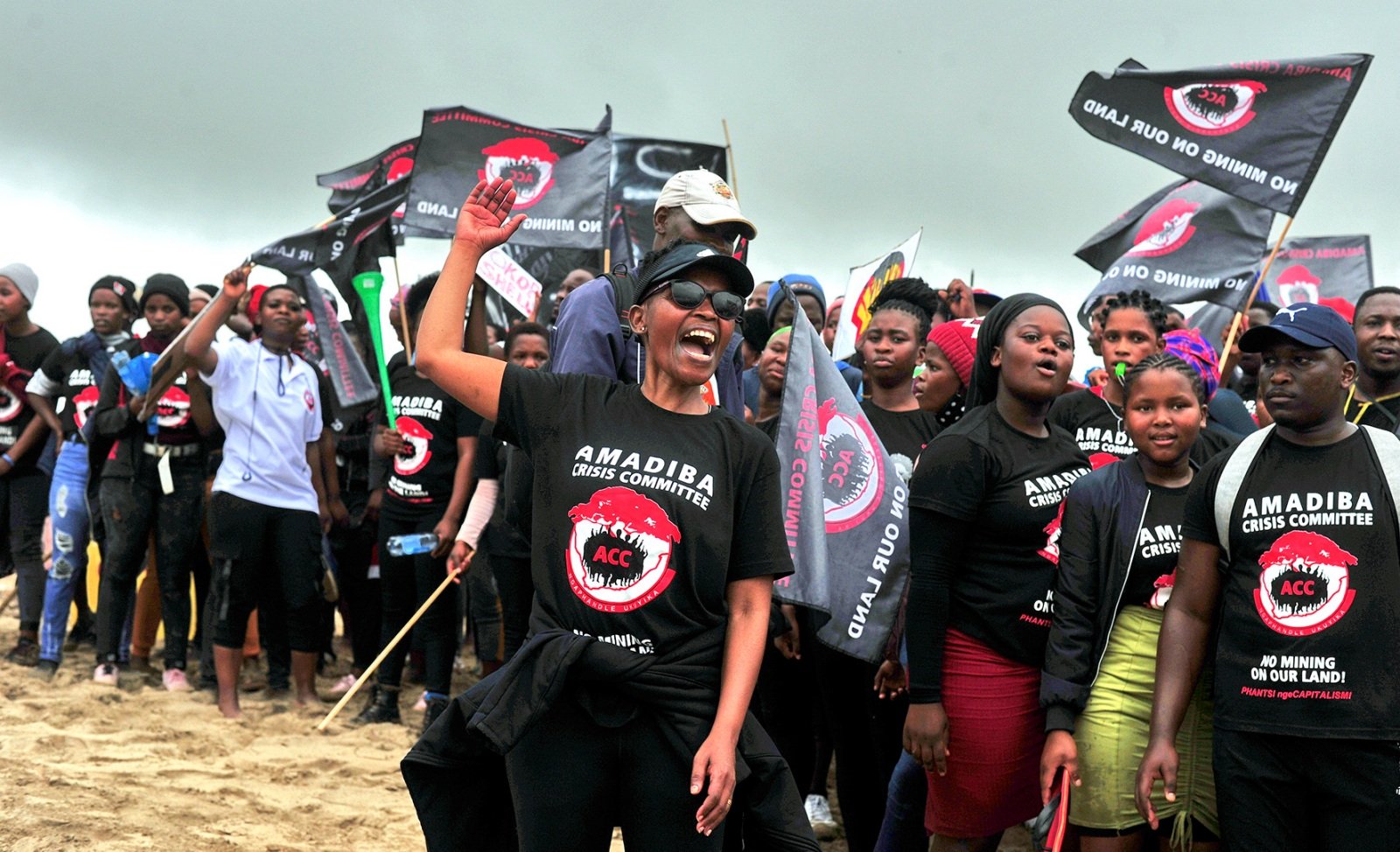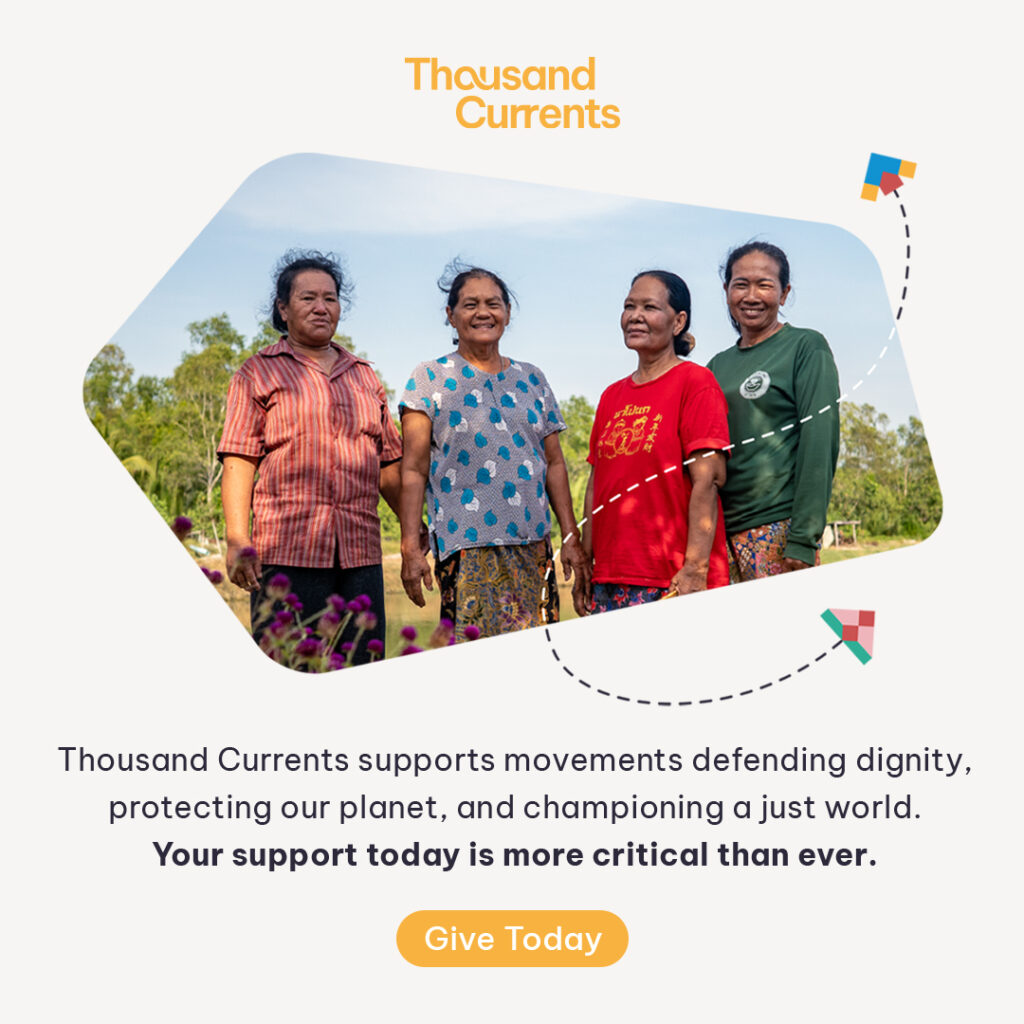When a “crisis” isn’t a crisis

By Jennifer Lentfer, Former Director of Communications
This post is based on a funders’ online dialogue series hosted earlier this year by The Whitman Institute on “trust in a time of distrust.”*

Herschelle Milford at the SPP office
“I’d been with the Surplus People Project for 18 years when I resigned to explore new opportunities,” says Herschelle Milford, interim director of the Surplus People Project (SPP), an organization that has supported land and agrarian struggles of people who are poor in the Western and Northern Cape provinces since the 1980s and a partner of Thousand Currents since 2012.
When the new director resigned suddenly after just seven months, Milford was called back into the organization to bring some stability.
But would the donors stick around?
“Many foundations take leadership transition as a moment to pause, pull away,” explains Pia Infante, co-director of The Whitman Institute.
“They say, ‘Why don’t y’all get yourselves together, and then we’ll start supporting you again?’…which is exactly the opposite [of what they] need.
“If an organization is in transition for whatever reason – a grant didn’t come in, a leader has burned out – that moment is actually the most important moment to demonstrate that you [as a funder] have always trusted the organization’s mission.
“Where is the faith in the greater conditions of leadership that you are invested in?” asks Infante.
During this time, Milford reports that Thousand Currents didn’t have any angst about this leadership change.
“When a partner approaches us with a challenge they are facing, Thousand Currents enters into a conversation with the partner to better understand how Thousand Currents can be supportive,” says Luam Kidane, former Vice President of Global Programs at Thousand Currents.
“For instance, if there’s a sudden resignation of a director or there’s a need to switch strategy in the middle of a strategic plan, we understand that these types of changes as part of the cycle of work that is responsive to the needs of the community. [This is] instead of immediately approaching shifts, sudden or not, as a problem that Thousand Currents needs to manage or a situation which automatically adversely affects the partnership.”
Milford recalls a phone call she had with Kidane after she reached out to share that she was going to step back in as interim director of SPP.
“The core was about ‘How can [Thousand Currents] support?…There was nothing about, ‘What is happening now? And do we have to think twice about our funding?’”
She says Thousand Currents was relaxed because their relationship with SPP was so deeply grounded.
“The foundations are strong, despite the stress the organization was under.”
As a funder who is in solidarity with movements, Thousand Currents ensures that its systems are flexible enough to respond to the different shifts that happen. Kidane says that when she heard SPP was going to be going through another leadership transition and another [hiring] process, she had a conversation with Herschelle.
“I took the approach of, ‘Okay, I understand that a shift has happened,’ so how can Thousand Currents then be in support of the new or different direction that Surplus People Project is moving in?’”
Kidane says that one of the reasons that Thousand Currents is able to shift is through embracing grantmaking work as a learning process.
“Thousand Currents turned 33 this year and it’s taken 33 years to really be able to learn and deepen this particular practice of solidarity,” she explains.
“Thousand Currents still has a lot more to learn in terms of how to be in solidarity with different movements and organizations. The idea is not to try to reach an endpoint, but rather to always be on a learning journey with Thousand Currents partners about how to be in continual solidarity as a funder.”
Kidane also says that it is important that funders don’t add their own value judgments to the shifts that are necessary parts of work within movements and organizations.
“Things change. Two of the foundational principles that Thousand Currents tries to hold true in the grantmaking work is to understand that movement building is not a linear process and that we need to take the lead from Thousand Currents partners, who are the ones actually doing the work around climate justice, food sovereignty, and economic justice,” explains Kidane.
As for SPP, the work with communities continued and the temporary leadership setback was just that – temporary.
Milford shares, “I can gladly say we are on track and preparing for the new CEO to start.”
* The three organizations that participated in the online dialogue – the Whitman Institute, Thousand Currents, and Surplus People Project – all have both relationships of learning and trust, and at the same time, resources flow between them. Thousand Currents is a long-term, grantee partner of the Whitman Institute and Surplus People Project is a long-term partner of Thousand Currents. Solidarity, listening, and trust-based grantmaking are a core part of how these organizations relate to each other, not just between singular staff members, but from institution to institution.
Related Stories




